Traditional and Holistic Treatments
We offer a variety of traditional and holistic modalities to meet each client’s specific mental health and rehabilitation needs.
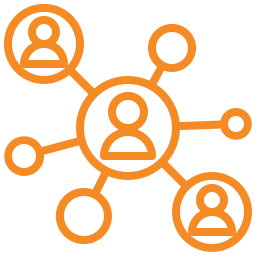
Alumni and Aftercare
Community support systems are vital to success in both mental health treatment and addiction recovery. Our alumni aftercare program provides additional support to ensure long-term recovery. Our alumni program enables our clients to stay in touch with others on the same path toward a healthier, more fulfilling lifestyle. This is done in a safe and reliable space in which they may share their life experiences and continue to practice tenets of West Coast philosophy in their daily lives. Activities offered include community events, mountain retreats, beach bonfires, and softball games. We also provide weekly alumni process groups run by our alumni coordinator.
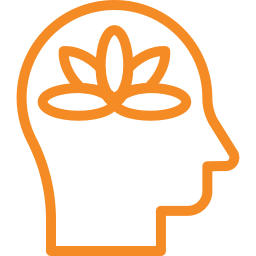
Dialectical Behavioral Therapy
Dialectical behavioral therapy (DBT) is a mindfulness-based treatment among the third wave of behavioral psychological treatments. DBT has been extensively researched and is recognized as an effective treatment for disorders associated with difficulties in emotional regulation issues, such as borderline personality disorder, substance abuse, post-traumatic stress disorder, eating disorders, self-injury, and suicidal behaviors. DBT skills groups are one component of the full DBT, focused on enhancing clients’ capabilities through behavioral skills training. DBT skills train individuals to make more effective choices in line with their goals.
Case Management
Clients entering treatment often need support obtaining resources and with life skills. West Coast Recovery Centers offers referrals to resources helping clients in need of food, medical, and transportation. Each client is assigned a case manager who will meet with them weekly to provide individual support obtaining resources and developing an aftercare plan.

Group Therapy
Group therapy is a great opportunity to give and receive feedback while learning to communicate thoughts and feelings in an effective manner. All clients participate in topic groups and process groups while at West Coast Recovery Centers. Topic groups allow clients to consider new thoughts and ideas and become educated on a particular topic. Process groups are an opportunity for clients to discuss thoughts, feelings, and experiences with their peers and a group facilitator in a safe and structured environment. In the first half of the day, all clients will be participating in gender-specific group therapy. West Coast recognizes the importance of both gender-specific and co-ed group settings.

Individual Therapy
All clients meet with a therapist upon intake to complete a personalized assessment, including evidence-based evaluations to assess for depression, trauma, and anxiety. After completion of the assessments, clients are assigned an individual therapist. Based on the level of care, individual therapy sessions will vary. When in partial hospitalization (PHP), which is Monday-Friday, 9 am-3:45 pm, clients will meet with their therapists weekly. As clients transition to intensive outpatient, which is Monday-Friday, 9 am-12 pm, clients will meet with their therapist bi-weekly. All clients will complete an individualized treatment plan incorporating their strengths and needs, as well as goals for addressing substance abuse, mental health symptoms, and increasing life fulfillment.

Military Recovery Program
West Coast is proud to offer intensive outpatient services for military members—both active-duty personnel and veterans—and their family members. Service members face unique experiences and pressures. Through their line of work, they are regularly exposed to trauma and put in stressful situations. We have customized our evidence-based programming to be responsive to military members’ individual needs and the needs of their loved ones.

Cognitive Behavioral Therapy (CBT)
The goal of cognitive behavioral therapy (CBT) is to help clients identify unhelpful thoughts that perpetuate unhealthy cycles and thoughts. By unearthing the reasons behind the negative thoughts or the compulsion to use substances, clients learn to modify their thinking patterns and find healthy ways to cope.

Substance Abuse Psychoeducation
Clients will participate in educational seminars and courses so they can learn more about themselves in relation to the science of addiction. Clients will explore topics such as what leads to chemical dependence and substance use disorder, psychopharmacology, the effects of alcohol and substances on the brain and the body, and more.

Yoga
Studies have shown that practicing yoga increases the levels of the neurotransmitter GABA, which is often low in individuals who suffer from stress, anxiety, depression, and substance use disorder. Yoga takes advantage of the brain’s neuroplasticity, which is often the same characteristic that makes change so difficult. Depression, anxiety, stress, and other negative emotions activate the body’s nervous system and the emotional regions of the brain. The body eventually settles into these patterns, and even if the mind has insight, the body will continue to activate these physiological patterns unless this insight is embodied. While traditional therapies work exclusively with the mind, yoga engages the mind and body simultaneously, often inducing an experience of revelatory insight and general well-being. Clients participate in weekly yoga groups.

Creative Expression
West Coast Recovery Centers values the therapeutic benefits of creative expression. Research shows that utilizing creativity as a therapeutic intervention yields decreased symptoms of anxiety and depression and increased enjoyment and satisfaction. Clients participate in expression through creative arts groups weekly. These specific art projects are designed to allow clients to become more vulnerable and engage with their emotional bodies in ways that don’t require explicit verbal processing. Clients also learn to practice mindfulness and stress reduction, identify inner inspiration and confidence, and challenge old patterns of negative self-talk through the subjective process of creating art. In addition, through the reflection and feedback received from peers, clients are receiving validation while building interpersonal skills.
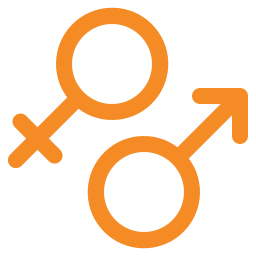
Gender Responsive
Socialization, psychological development, exposure to trauma, and life experiences differ among men and women. West Coast considers each of these different yet gender-specific issues when developing and re-examining our men’s and women’s programming to be responsive to all of our clients' needs. West Coast uses five core practices in developing gender-responsive programming: relational, strengths-based, trauma-informed, culturally competent, and holistic approaches.

Communication Styles
Clients receive education in effective communication styles in this gender-responsive group. They will learn to distinguish the difference between disempowering and empowering methods of communication. This process begins with the clients examining hidden beliefs that motivate their current communication style. The clients become aware of their self-image and thought process (self-talk) and how this relates to their ability to communicate in a cooperative manner.
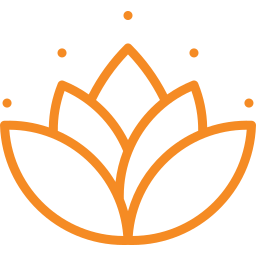
Mindfulness and Meditation
The holistic practice of mindfulness and meditation enhances self-discovery by slowing down thoughts and inducing present-moment awareness. These methods of self-discovery can assist one in becoming more in tune with their mind and body, while engendering an increased sense of control over one’s thoughts, feelings, and behaviors. While in treatment at West Coast, clients participate in guided meditation, walking meditation, mindful self-compassion, sound healing, guided imagery, deep breathing exercises, yoga, and creative arts expression. Mindfulness and meditation are also effective in coping with symptoms such as anxiety and depression, making it an effective tool for clients struggling with co-occurring diagnoses. This holistic modality can be used in combination with many of our traditional therapies, providing a multitude of benefits extending beyond substance use disorder treatment. Clients also participate in gender-specific yoga therapy weekly. Studies have shown that practicing yoga increases the levels of the neurotransmitter GABA, which is often low in individuals who suffer from stress, anxiety, depression, and substance use disorder. Yoga takes advantage of the brain’s neuroplasticity, which is often the same characteristic that makes change so difficult. Depression, anxiety, stress, and other negative emotions activate the body’s nervous system and the emotional regions of the brain. The body eventually settles into these patterns, and even if the mind has insight, the body will continue to activate these physiological patterns unless this insight is embodied. While traditional therapies work exclusively with the mind, yoga engages the mind and body simultaneously, often inducing an experience of revelatory insight and general well-being.
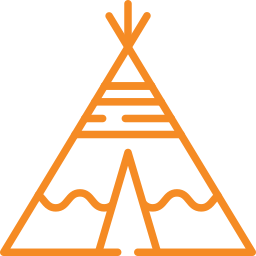
Red Road Curriculum
WHAT IS WALKING THE RED ROAD?
“Walking the Red Road” is a deep sense of obligation and a meaningful personal commitment to purposefully live your life each day practicing and embodying The Seven Sacred Virtues of the Lakota. Some people are standing on the road, and some people are walking on it. Are those walking the Red Road seeking perfection? No, they are simply walking in the right direction in a good way and they have seven sacred virtues that guide them. The Lakota received these virtues from the White Buffalo Calf Pipe Woman who brought Sacred Pipe to the people. The stem of the pipe represents the male and the bowl represents the female. When the stem of the pipe is merged with the bowl, the pipe comes alive and empowered with The Seven Sacred Values of the Lakota:
1. Wóčhekiya – Prayer
2. Wičákha – Honesty
3. Wahwala – Humility
4. Waúnšila – Compassion
5. Waóhola – Respect
6. Wawokiye – Generosity
7. Wóksape – Wisdom
Those interested in walking the Red Road start by becoming familiar with these seven values. When learning them, you must control your anxious mind and be patient—there is no rank, level, or social status to achieve. Study these values, practice them, learn the sacred ceremonial songs, participate in sweat lodge ceremonies, and be genuine and diligent in honoring these ways. Honor the gift of the vision, whereas Wakan Tanka blessed the covenant of Native Ways becoming Human Ways to those who walk the Red Road.
WCRC has partnered with the Native American communities of the San Diego area, offering culturally centered activities such as the Inipi Ceremony or Sweat Lodge and connections to local cultural activities such as the Pow Wow. West Coast clinical staff have received training in well-being modalities such as Mending Broken Hearts, Warrior Down, 12 Steps, and the Medicine Wheel. Well-being groups are run weekly and supported by Native American counselors.
We work with most major insurance companies on an in-network basis.

